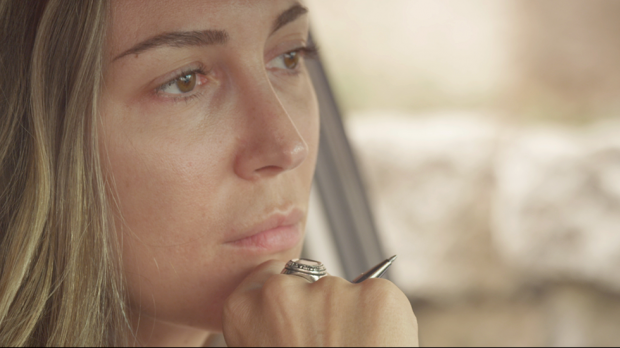
The Lavazza Italian International Film Festival comes to Perth this week. Running from September 27 to October 17, the festival will be showing both recent and classic Italian cinema. Showing as part of this line up is Sardinian born Australian director Lisa Camillo’s debut film Balentes – The Brave Ones. This documentary follows Camillo’s return home to the beautiful island paradise of her childhood, only to discover it’s harboring a poisonous secret, as US and NATO bombing ranges on the island threaten the health of the inhabitants. DAVID O’CONNELL spoke to Lisa Camillo about the making of Balentes, and what it was like experiencing those changes to her childhood home.
Well, let’s start by asking what Balentes means?
It means The Brave Ones. People who are courageous and willing to fight no matter what.
What inspired you to tackle this subject?
I’m an Anthropologist (Camillo holds a Masters in International Development), and I ended up going to Sydney Film School to combine different streams… to make a difference in the world and to try and bring it to a broader audience, so people will know the issues that others are facing.
Did you find that different background helpful in making this documentary?
It was incredibly helpful. I used to work in the indigenous community, organising projects, consulting with the community, getting to know the problems and working out how to solve them. So that was more than helpful when making something like Balentes.
I’m assuming one of the things you wanted to capture was a sense of place. How did you try and capture that with Sardinia?
I spoke from the heart really. That was the main thing. Coming back to my homeland and trying to reconnect. Leaving a place that I loved, but wasn’t offering enough work. It is an experience that is very very common to migrants, missing your home, missing your lands. So l thought that was important to share with the audience.
Did your idea for the documentary change significantly from your initial idea?
It was a surprise. I wanted to go back to make a documentary about all the glitz and glamor of the Coasta Smerelada – it’s a holiday place. I was taken back when I discovered these beautiful beaches were hiding very dangerous secrets , that were making the locale people incredibly sick. Babies born with malformations because of what NATO is using in these areas of Sardinia.
How was it capturing both the beauty of the region and the devastation inflicted in some areas?
Some areas were really tricky to film, being military areas, they were off-limits. Some of the places we had to sneak in. Some of the places we had to wait for a different time of year. During winter some parts of the island are off limits, as the military is bombing, conducting training and trialing weapons.
Did you have concerns for your safety when filming Balentes….say….when you where standing next to an unexploded bomb?!
Yeah I was…. I was actually really concerned. There’s things that could explode, but these places are also really contaminated. People were getting cancer because of small particles (thorium). Again, I’ll stress, it’s not all over the island, only some parts, and many beaches are still pristine and beautiful. Unfortunately around the military areas they are incredibly toxic.
What was it like trying to get interviews in such a situation? Were people willing to open up to you?
Some of them were really honest and open, really wanted to make things change. Others were scared of persecution, or how the town would judge them, as a few people benefit from the military – like the people that clean and maintain the area, or provide food for the soldiers. It’s not much, but when you don’t have anything else it means a lot, so you protect it. However things have to change! We need to get the military out of Sardinia and clean up those areas.
How long did this project take?
Four years. It was challenging. An independent production, and crowd-funded. Exhausting trying to convince people to believe in me and to support me.
I imagine sourcing the archive footage must have take some time.
That was massive, but that was a really fun task, investigating, and trying to find the footage of the stories we were hearing. Like the footage of the military plane crash. Oh my God!…. terrifying, but made it very real for us.
I guess the other thing that made it very real for you, was the family footage that you were able to use, showing us the before and after…
That was a surprise, I didn’t know we had Super 8 like that. It was discovered at my place, old family stuff, and I looked through – and it was amazing. It allowed me to connect with the audience, I took them on a journey. You see this is actually real! It effects me, and my family, and my people, and the people interviewed in this story.
How has it been received?
So we just had the world premiere, which is why I’m extremely exhausted. It was such an emotional night for me. It was incredible. Everyone can’t believe the challenge l set for myself. “Oh my God, you’re actually fighting the military complex! You’re very brave! ” Well, the film is called The Brave Ones, not for myself, but for the people fighting this. And I guess in a way I did become brave in doing this.